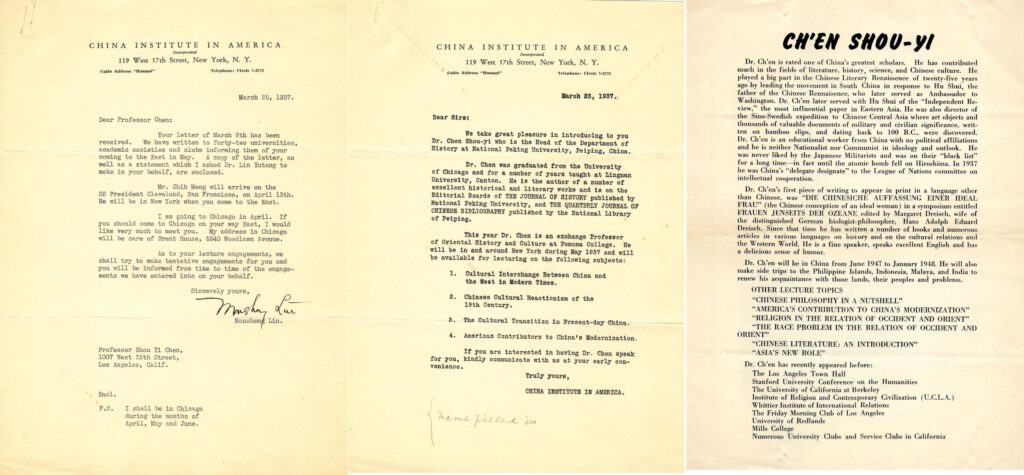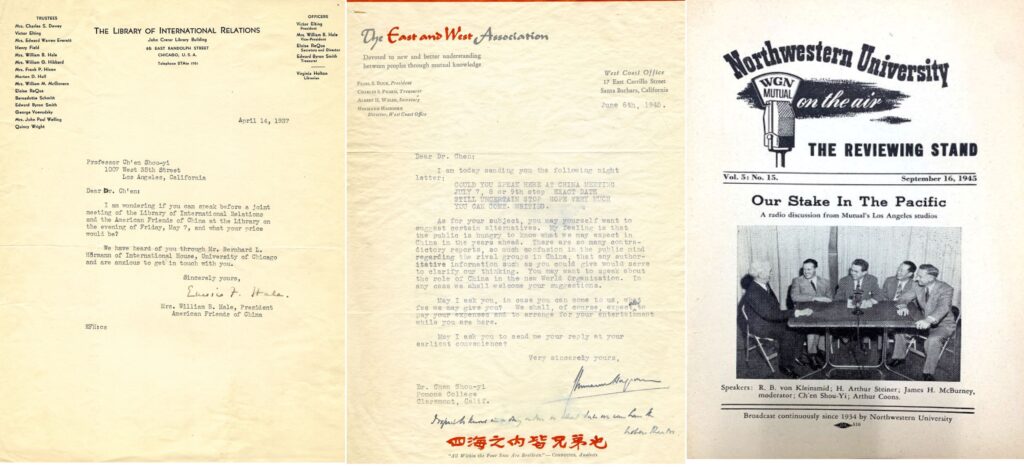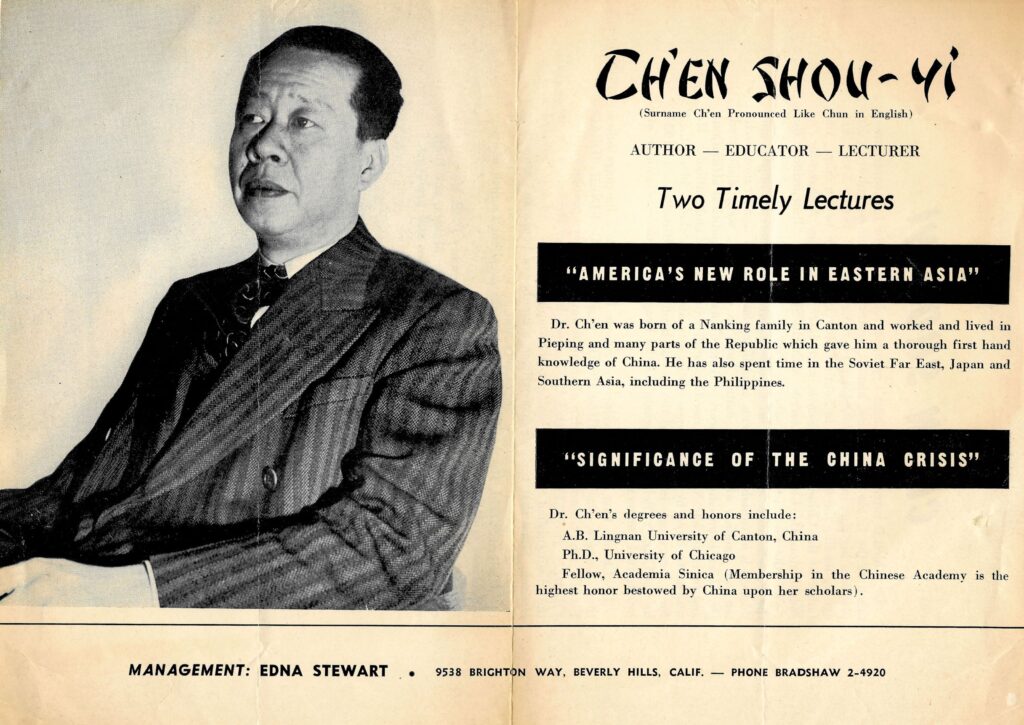Disclaimer: This post contains images of historical documents, some of which include perspectives and language reflecting the time in which they were written. The Claremont Colleges Library does not endorse all the views expressed in these documents.
This week I processed Ch’en Shou-yi’s correspondences. As we know, Ch’en was so professional at West-East exchange that he also transplanted his academic perspective to analysis of contemporary politics. As a result, in this box of Ch’en’s correspondence, I found many invitations from different organizations to invite Ch’en to introduce and analyze China. Ch’en was not only a mere scholar on campus, but also was an active participant in social activities to introduce Chinese culture, study Chinese domestic situations, and explore better ways to teach Chinese language and related Chinese studies.
In the past weeks we have introduced the connections between Ch’en and global scholars who focus on Chinese studies. Due to Ch’en’s success in Chinese studies on American campuses, scholars in China, Hong Kong, Taiwan, and Singapore wrote to Ch’en for suggestions and experiences in Chinese education. Ch’en’s contribution and influence in education fields also led him to be attractive to public audiences, who were eager to better understand China from a distance. On the one hand, many Chinese associations in the US such as China Institute in America, invited Ch’en for speeches not only for introducing Chinese culture, but also for drawing public attention on the Japanese invasion in China. Ch’en’s friends like famous Chinese writer Lin Yutang, and scholar Hu Shih, were important members or even founders of such associations, and thereby played important roles in introducing Ch’en to the public. On the other hand, American people were also passionate to understand China during the Cold War, and eager to review the failure of American diplomatic strategy in China with the victory of Chinese communists. Although Ch’en had his own political stance, he tried to introduce China vividly to the public from his perspective of Chinese culture, and reviewed the moral crisis and culture suppression in political movements. By studying the participations of Ch’en in various governmental and non-governmental organizations, scholars may uncover Ch’en’s social network in the United States, and understand how Ch’en became a bridge to maintain the cultural communication of China and the United States.


